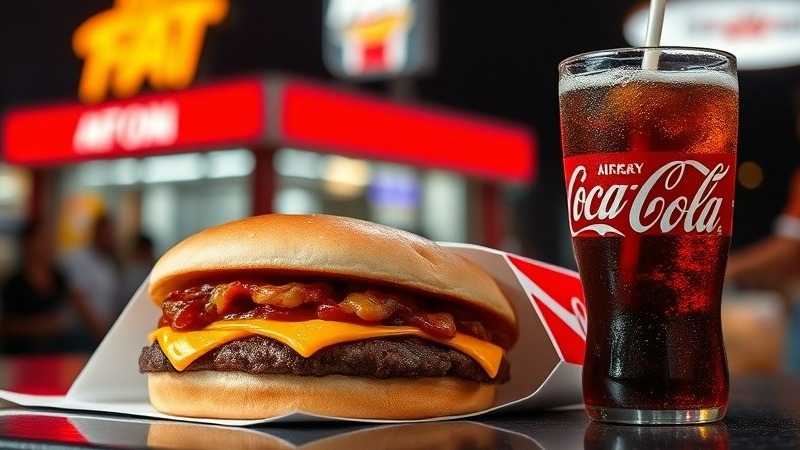
America's Fast Food Consumption: A Closer Look
Fast food has long been a staple in the American diet, often discussed in the context of health and nutrition. Recent reports from the National Health and Nutrition Examination Survey (NHANES) shed light on how much fast food is consumed by both adults and youth in the United States. Analyzing data gathered over the past decade, these reports reveal important trends and potential implications for health-focused practices.
Declining Fast Food Intake Among Adults
According to the NHANES findings, from August 2021 to August 2023, around 32% of adults reported consuming fast food on a given day. Notably, adults are deriving approximately 12% of their daily caloric intake from fast food, which marks a decrease compared to previous years, specifically from about 14% in 2013-2014. This decline may signal increasing health awareness among U.S. adults, potentially altering their eating habits positively as they age.
Fast Food Trends in Youth: A Mixed Bag
On the other end of the spectrum, the same reports indicate a more complex scenario for children and adolescents. Approximately 30% of youth aged 2 to 19 had fast food on a given day during the latest observation period. Interestingly, younger children (ages 2-11) averaged 8.5% of their daily calories from fast food, while this percentage nearly doubles to 14.6% for adolescents aged 12-19. These trends highlight a significant challenge for health practitioners: how to guide younger populations toward healthier dietary choices while addressing the rising influence of fast food marketing.
The Link Between Health and Fast Food Consumption
The reports also reveal a troubling connection between weight status and fast food intake. Adults with obesity consumed a greater percentage of calories from fast food, emphasizing the need for targeted health communication strategies. For concierge practice owners, fostering discussions around nutrition can enhance patient relationships and demonstrate a commitment to holistic health. By offering guidance on making healthier choices amidst an environment dominated by fast food options, practices can support long-term wellness in their patient populations.
Nurturing Healthier Relationships With Food
Building a bridge to healthier eating may require innovative approaches. For instance, concierge medical practices can leverage personalized nutritional counseling—helping patients to navigate food choices more effectively. Incorporating fast food alternatives into educational materials or wellness workshops could empower patients to make informed decisions that reflect both their lifestyle needs and health aspirations.
The Role of NHANES in Shaping Public Health Strategies
NHANES plays a crucial role in understanding American dietary habits. By collecting data through 24-hour dietary recall interviews, they offer unparalleled insight into nutrition choices. These assessments highlight not only what individuals are consuming but also the cultural and social attitudes surrounding food. As practice owners look to redefine patient experiences, it’s vital to align conversations around food with comprehensive health strategies, focusing on transformative rather than punitive approaches.
Take Charge of Wellness Through Nutrition Awareness
As we consider these findings, it’s essential to engage patients in meaningful dialogues about their dietary habits. Health communication should foster awareness of the implications of fast food consumption while celebrating healthy choices. Concierge medical practices are uniquely positioned to lead these conversations, guiding patients toward a healthier lifestyle.
Taking action is key—consider integrating comprehensive wellness programs in your practice that focus on nutrition education, cooking classes, or community engagement events that promote healthy eating. This initiative can strengthen your position as a leading concierge medical practice while contributing positively to your community's health.
 Add Row
Add Row  Add
Add 




Write A Comment